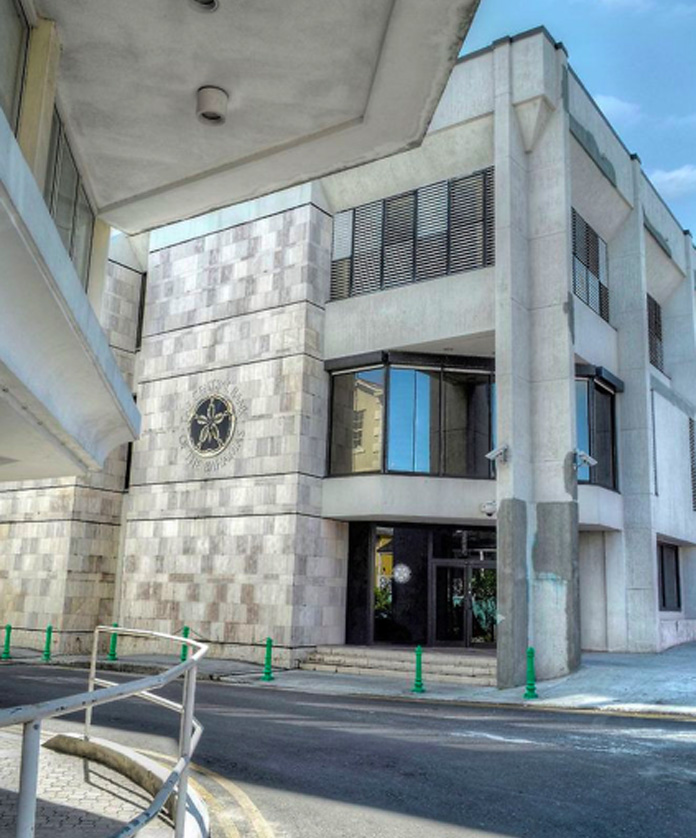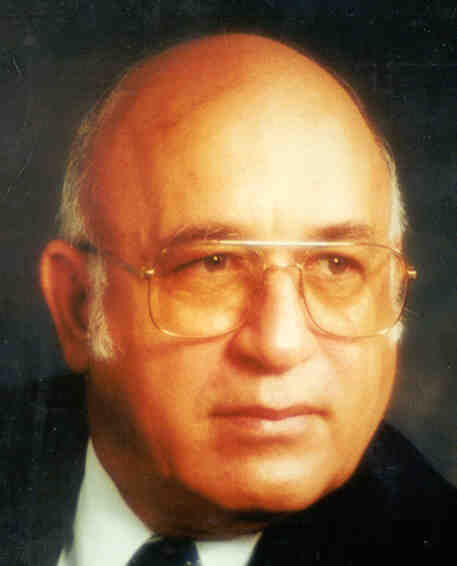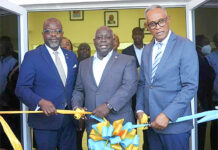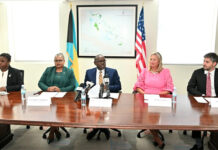
By Pierre V. L. Dupuch
September 18, 2020
The country’s broke. The Bahamas Minister of Finance says there’s lots of money. Some say that there will be a devaluation. Others say they’ll guarantee there will be no devaluation. Many say they’re taking a page about lying out of Trump’s playbook. You be the judge.
For those who are encouraging devaluation I hope they know what they are talking about. Talk is cheap. It looks as though facts these days are taking a back seat.
There are two types of economies, one made up of tangible assets and the other of intangible assets. Tangible assets, like bauxite, are consumed outside of a nation’s borders, the other, intangible assets, like sun, sea, beaches and relaxation, are consumed inside a nation’s borders.
The Bahamas’ assets are intangible, and devaluation of the money does not help the problem.
In economics, every time a visitor spends a dollar in The Bahamas, it is considered a “Capital Export”. The more tourists we get here, the more “exports” we are making. This is great.
The other side of the coin, however, is the “Capital Imports” side. To cater to the needs of the visitor we immediately convert about 70% of that “Capital Export” into a “Capital Import” by having to import food to feed him/her. This leaves us with about thirty cents on the dollar.
The question here is, “more tourists whose spending continues to go right back out of the country, or more tourists whose spending stays in the country”? Which is the most profitable for the Bahamian people? Less imports, which would create more local entrepreneurs and spread the wealth among the population, or just increase the number of tourists?
It is said that the Chinese plan for tomorrow and fifty years forward, ending up with results. We Bahamians, on the other hand, appoint committees, spend fifty years planning for yesterday, and “tomorrow” never comes.
Agriculture and production by local people is the answer.

Many years ago I visited a town in Italy and saw a conch shell in a store with old men sitting on stools carving “cameos” from the conch shell. I commented to my companion that it looked like a Bahamian conch shell.
The person answered, “It is, we collect them before they’re thrown away, ship them to Italy, and each shell produces about $3,000 worth of cameos.”
The Taiwanese brought some of the equipment here, put it in a Government training center, and trained Bahamians in the art. The question today is “where is it”? I understand it is behind some partition at the school collecting rust and dust.
I have been told that twelve million dozen T-shirts are sold to tourists every year. If this is true, why are they not manufactured here? Chippie Chipman set up a T-shirt factory in Nassau but went broke. Chippie told me that the reason was that he was asked to quote on two-dozen with a 30-day credit and at the same time China was asked to quote on 1,000 dozen with cash in advance. Chippie was told that he had lost the bid because his price was too high!!!!
Yes, this could only happen in The Bahamas!!!! It seems as though Chippie’s problem was that he was Bahamian. An outsider would have been given protection.
I took over from Tennyson Wells as Minister of Agriculture. He had banned the importation of Poinsettias into The Bahamas so that Bahamian growers could get into the market. I continued the embargo to much objection from the local importers who insisted that I lift the ban.
To give everybody a fair hearing I invited both sides to a meeting at the Ministry. Each side gave reasons to keep or to lift the embargo.
The importer was first. He said that he would go to the farmer in the U.S., order 1,000 Poinsettias, pay fifty percent down and give a letter of credit for the rest. The farmer would then plant the Poinsettias.
The Bahamian grower was next. He said that the buyer (the importer) would tell him to plant 1,000 poinsettias, no down payment, and if he liked them he would buy them with the understanding that the buyer would be given a 30-day credit.
I was shocked. My jaw hit the floor. The embargo was not lifted. The Bahamian farmer’s first crop was nothing to write home about. But as he was able to get into the market and could plow more money back into his business, the crop became outstanding and the industry grew, Capital Imports decreased, jobs were created and the industry grew!!
Some of my detractors called me the “Banana Minister”. I believe it was a badge of honour. The farmers constantly told me that the wholesalers would not buy their bananas. I invited the wholesalers who were concerned about the situation to my office where we agreed that they would buy all that the local farmers could supply and then import the excess. This sounded reasonable.
The problem was that the agreement was never lived up to, and so I put a ban on bananas. In one year the farmer doubled the production and increased the quality by 100%.
The banana producers were growing like wildfire and then the powers that be chose to transfer me. The rug was pulled from under the local farmer and he was left to eat his banana crop.
I felt that I had let the farmers down, but the rug had been pulled. I never thought that any government would let our people down in such a way.
Had the ban been left in place, it would have been another Bahamian industry, feeding our locals and visitors, and reducing our Capital Imports and thus creating jobs and leaving more money in The Bahamas.
Many years ago, Dr. Lynn at the Ministry of Agriculture suggested to me that if breadfruit trees were planted we could replace the importation of potatoes. He said that a breadfruit, properly prepared, could replace potatoes. It was Gods gift to the countries that did not have sufficient earth to grow potatoes. Local stores are now selling boxes of breadfruit flour produced outside The Bahamas.
The argument is that we cannot feed ourselves because when the season for oranges, for example, has passed we’ll have to import them. This is true, but it is true for many countries. But we also have an advantage. We have Abaco in the North and Inagua in the South. So when a guinep is blooming in Abaco, it is ripening in Inagua, which means we have a longer ripening season!! Plant properly and we’ll have a ripening season that is longer than many countries.
What can be done? For starters the Government should start treating Bahamians like first class citizens. Long-term contracts should be given to the local farmer, just like the Government would do for an outsider.
I say to Government, don’t devalue the dollar, don’t give our country away to outsiders, and start thinking outside the box … if you are able.







